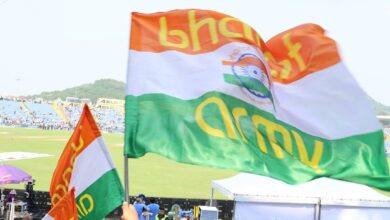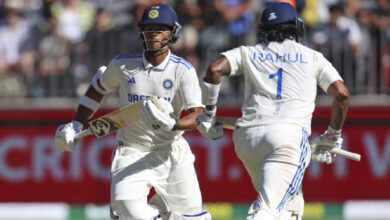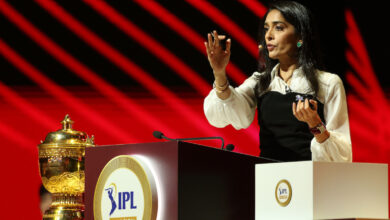Chess legend Garry Kasparov, has always been a rebel, even if it meant taking on Vladimir Putin or his mentor Mikhail Botvinnik | Chess News

In November 2007, when Garry Kasparov was serving a five-day prison sentence at a Moscow detention centre for leading protests against President Vladimir Putin, he received a magazine from an old adversary, Anatoly Karpov.It was an odd gift to receive behind bars. But for Kasparov, it meant a lot. As he recollected in a Timeline documentary later on, the magazine was a ‘gesture of solidarity between world champions’ that put them above their political differences.
One wonders what Karpov would make of the news that Russia had designated Kasparov as a terror on Wednesday. It was just the latest consequence of Kasparov’s vocal criticism of the powers that be in his native country. He was added to a l of “foreign agents” in May 2022, and has been detained at least twice for his role in anti-government protests.
During their playing career — during which the Russian grandmasters had duelled for the fate of the world chess championship multiple times — Kasparov and Karpov were not known for acts of generosity towards each other. They were as different as two players could be on the board: Karpov, the good, obedient Commun, played chess like a boa constrictor, squeezing the opponent out of breathing space on the board. Kasparov, the rebel with a mind of his own, liked to play an aggressive style of chess.
One wonders what Karpov would make of the news that Russia had designated Kasparov as a terror on Wednesday. (Facebook)
After retirement, Kasparov had become a world-renowned anti-regime dissident; Karpov was a member of the Russian Public Chamber (a collective government oversight body), and was a vocal supporter of Putin.
But seeing his one-time opponent behind bars stirred emotion even in Karpov’s mind. “That was a bitter episode for me… not a pleasant one for Russia. We shouldn’t act like this. His offence wasn’t serious enough to put a world champion in jail,” he told Timeline.
The former world champion has been under threat of even more severe consequences of his anti-regime opposition. A former KGB general Oleg Kalugin told Foreign Policy magazine in 2007 that Putin’s “targeted killings would one day reach Kasparov.”
Kasparov, who founded the United Civil Front besides many other pro-democracy initiatives, eventually left Russia. He chose to live in exile in New York, a move that came at a massive personal cost as his aging mother, Klara Shagenovna Gasparian, lived herself in Moscow until her death.
Asked if he will ever return to Russia in a podcast, Kasparov said: “(I’ll return) Even before many people think. I’ve read enough horical books to know that dictatorships end suddenly. On Sunday, a dictator feels comfortable and believes he’s popular. On Monday morning, he’s bust. It’s good news and bad news. The bad news is I don’t know when and how Putin’s rule will end. The good news is that he also doesn’t know.”
xxx
In 1999, Kasparov played one of the best games of chess in hory at Wijk Aan Zee, forcing former world champion Veselin Topalov to resign after 44 moves. Playing with black, the most remarkable thing about the game is how Kasparov led his king fearlessly to the end of the board — the 8th rank — as his opponent crumbled despite being a queen up.
On the pitched battlefield of 64 squares, there is no piece more mollycoddled than the king. convention, they do not march into enemy territory. They are built to sit on a chaise lounge chair on the back ranks while being guarded a posse of pawns and other pieces on near squares.
Kasparov, though, was never one to stick to convention. Well-behaved, dogma-following kings rarely make hory. A world champion the delicate age of 22, Kasparov always aspired for more.
There have not been too many world champions in the sport, but it is indicative of what they have been away from the narrow pathways of the chess board. Magnus Carlsen lost interest. Vladimir Kramnik spends his time in paranoia, pointing fingers at players he believes are cheats. Wilhelm Steinitz had to be admitted to an asylum. Bob Fischer isolated himself from the world with his controversial, anti-Semitic world views.
But Kasparov was always a rebel. He famously fell out with his mentor Mikhail Botvinnik, who was the patriarch of the Soviet School of Chess (which molded the careers of Kasparov, Kramnik and Karpov among others) over political issues. As a player in the 90s, he engineered a breakaway from FIDE and helped create a parallel World Championship series. In 2014, he ran — and lost — in the presidential elections for FIDE against Kirsan Ilyumzhinov, who had a reputation for being a tyrant as the ruler of Republic of Kalmykia.
Making hory came easy to him. But it was legacy that he has always been chasing. That’s what inspired him to become one of the most high-profile chess players to face off against computers. He defeated Deep Blue in the first encounter, before losing in the second in what was his first ever defeat (in a series not a single game). He’s spoken time and again about the shallowness of comparisons between players of different eras. His quest was always to be a trailblazer.
Like his king against Topalov in that immortal 1999 game, Kasparov isn’t daunted the strength of the opposition that stands between him and victory.
He was once asked in a podcast Lex Fridman if fear enters his mind and heart.
“I grew up in a family which taught me the wisdom of Soviet dissidents: do what you must! I cannot stop doing what I have been doing for a long time. It’s the right thing to do,” he said.
On Thursday, after learning about Russia designating him as a terror, he scoffed. “That’s an honour that says more about Putin’s fasc regime than about me,” he was quoted as saying Politico. Kasparov’s words also said a lot about his unwavering stand.







